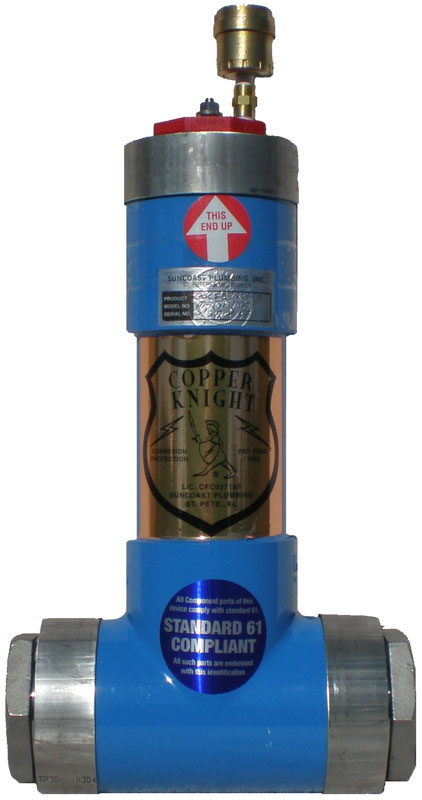Bill Allbritton
New Member
I am seeking help for isolating what is causing my copper pipes to develop pin hole leaks. I realize this is a common problem in Florida and sometimes hard to determine what is causing it. My house is 19 years old and I have had about 6 leaks in the last 11 years. All my pipes are above the slab as I have a 2 story house. Only 2 of the leaks have actually been inside the house, the rest were in the incoming copper pipe just inside or outside my utility room. I have had the water tested, and the only potential corrosive element was the chlorine, which was not all that high. I had a Copper Knight installed about 10 years ago, but have still had the 2 leaks inside the house since then. I am in the process of talking with them, because I think i didn't check the maintenance correctly, so I am now monitoring it frequently.
My question is this. I have galvanized nipples connected to my outside faucets and then screwed into the copper fitting inside the wall. Although I do have a small amount of rust come from the faucet when you first turn it on when the faucet has not been used recently, the faucets otherwise have had no problems. Unless the fitting in the wall has some dielectric union on it, the setup creates a potential corrosion situation when the dissimilar metals touch. Could this be causing the corrosion in the rest of the house? None of the leaks have been near the outside faucets. I'm at my witts end on this and just trying to get a handle on it.
I am on a city water system, and I am not the only house with leaks.

Copper Knight
http://copperknight.com/
727-409-0406
My question is this. I have galvanized nipples connected to my outside faucets and then screwed into the copper fitting inside the wall. Although I do have a small amount of rust come from the faucet when you first turn it on when the faucet has not been used recently, the faucets otherwise have had no problems. Unless the fitting in the wall has some dielectric union on it, the setup creates a potential corrosion situation when the dissimilar metals touch. Could this be causing the corrosion in the rest of the house? None of the leaks have been near the outside faucets. I'm at my witts end on this and just trying to get a handle on it.
I am on a city water system, and I am not the only house with leaks.

Copper Knight
http://copperknight.com/
727-409-0406
Last edited by a moderator:

